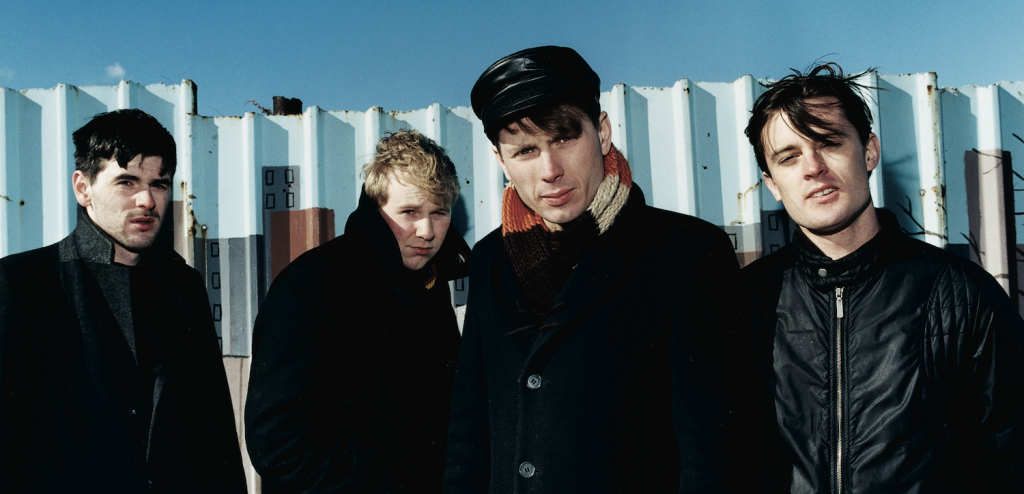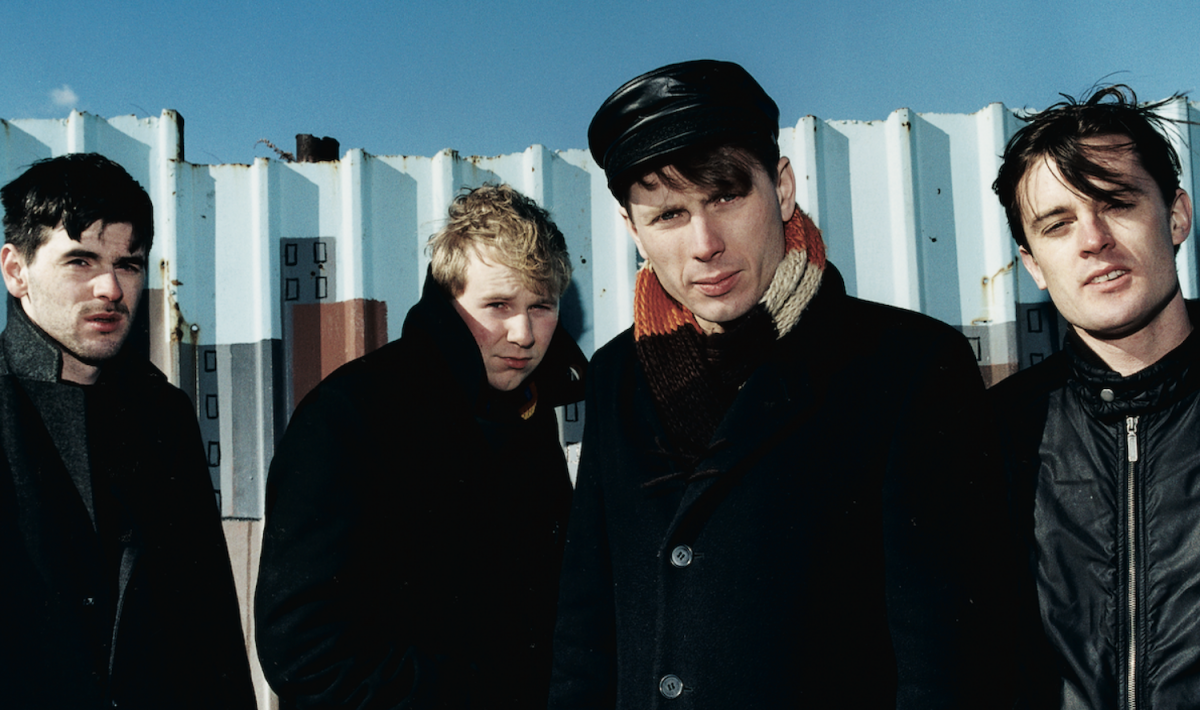
What will 10 quid buy a Scottish band? If you’re a member of Belle And Sebastian’s brass-happy army, it might cover the down payment on a secondhand trumpet. But if you’re part of Franz Ferdinand, the money not only covers a month’s rent at one of Glasgow’s more unusual rehearsal spaces (a run-down, Victorian-era jail nicknamed the Chateau), it may just be your ticket to fame.
“We wanted a place like a kid wants a secret hideout, where we can muck about and do our thing,” explains singer Alex Kapranos, who credits the hulking municipal building as inspiration. Sometimes, when the lights are off and the temperature drops, Kapranos will make his way down to the moldy cells in the Chateau’s basement. He’ll lock the door and sit with his back against the cold stone, trying to imagine what the prisoners waiting on death row must’ve felt like. He thrills at the thought: “You’d get the whole treatment here: arrested, tried, imprisoned, hanged and laid out on a slab, all in the same building.”
Two years ago, Kapranos was teaching English to political refugees at a local university, while drummer Paul Thomson was modeling for students at the Glasgow School of Art, where bassist Bob Hardy was taking classes. After keyboardist Nicholas McCarthy bogarted a bottle of Kapranos’ vodka at a party, Franz Ferdinand was born. The group turned its previous rehearsal space—an old warehouse also christened the Chateau—into party central for much of Glasgow’s tight-knit arts community. Word spread quickly, and the band was eventually arrested for running an illegal bar, violating fire codes and waking neighbors at all hours of the night. (After a bit of sweet-talking, the charges were dropped.)
One night last year, more than a dozen record-label execs turned up to make heads or tails of all the fuss. One A&R scout stood at the edge of the stage with his mobile phone held up to the speakers. What the person on the receiving end heard is something akin to an oversexed Gang Of Four revamping Oingo Boingo or XTC’s Drums & Wires. It sounded a little like Trainspotting feels, minus the uncontrollable bowel movements. It was like Hot Hot Heat or the Faint or the Strokes. It was danceable and clappable, and by god, it was marketable.
Curiously enough, the first 44 seconds of Franz’s self-titled debut (on Domino) are deceivingly twee: Kapranos’ unflinching monotone recounts a tale of an elusive 17-year-old librarian who’s caught the eye of a young admirer. At the 45-second mark, our heroine abruptly sheds her sweet demeanor (and her clothes) as McCarthy hightails his Rickenbacker through a gale of crashing cymbals and soldierly guitar sonatas. While most of the lyrics deal in matters of the flesh (check “Michael,” a ravenous ode to gay lust), Kapranos also mocks the “new Scottish gentry”—minor celebrities who drive 4X4s and anglicize their vowels—and addresses mankind’s perpetual dissatisfaction with life.
An admitted history buff, Kapranos says Franz Ferdinand was named after the Austro-Hungarian archduke whose assassination sparked World War I. “We wanted to be associated with a great turning point,” says Kapranos. “I hope we are.”
—Ashlea Halpern







